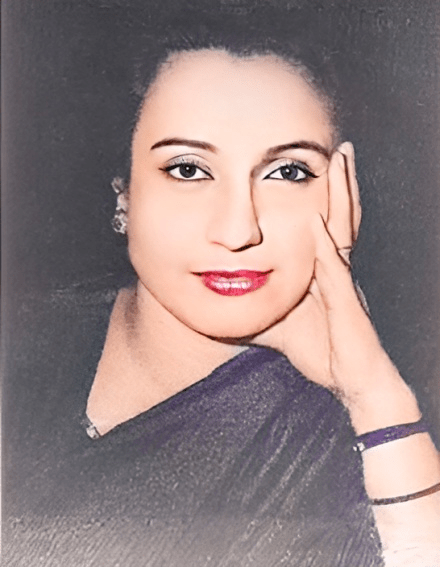Begum Shaista Ikramullah, the first female representative of the first Constituent Assembly of Pakistan (1947), Pakistan’s former Ambassador to Morocco, mother-in-law of Jordan’s Crown Prince, and niece of the great leader Huseyn Shaheed Suhrawardy, was born on July 22, 1915, at Calcutta in the prominent Suhrawardy family of West Bengal. She was educated at Calcutta and London. During that period, strict purdah environment was prevalent in the Muslim society of India. Her mother was a traditionalist while her father, an eminent surgeon and politician, was a dynamic liberal who encouraged his daughter to study.
She got married at quite a young age. Her husband was a diplomat and served as Pakistan’s first Foreign Secretary. He encouraged her pursuit of modern education. She was the first Muslim woman to obtain a doctorate from the University of London in 1940. Her doctorate thesis “Development of the Urdu Novel and Short Story” was a critical survey of Urdu novel and short stories.
In 1945, Begum Ikramullah was asked by the Government of India to attend the Pacific Relations Conference. Quaid-i-Azam convinced Begum Ikramullah not to accept the offer, as he wanted her to go as the representative of the Muslim League and to speak on its behalf. Six weeks after the establishment of Pakistan, the Quaid asked Begum Ikramullah to go as a delegate to the United Nations.
Begum Shaista Ikramullah was one of the few Muslim women to have taken an active part in the Pakistan Movement. She was totally committed to the creation, and the building of Pakistan. The first legislature of Pakistan in 1947 had two women representatives, Begum Jehan Ara Shah Nawaz and Begum Shaista Ikramullah. Together with Begum Shah Nawaz, she made untiring efforts to get the “Islamic Personal Law of Shariah” approved. Her male counterparts in the legislature had certain reservations towards this law, which recognized women’s right to inherit property in accordance with the Islamic Law. The law also guaranteed all citizens; male and female alike, equal pay for equal work, equality of status and equal opportunities. After protests by women both inside and outside the legislature, the bill was finally approved in 1948, and became effective in 1951 when Pakistan adopted its first constitution. She continued to play an active role in Pakistani politics in the critical years preceding the Martial Law.
Begum Ikramullah served Pakistan as a delegate to various international conferences and United Nation’s Conferences. She also served as Ambassador to Morocco from 1964 to 1967.
In the late 80’s, Begum Ikramullah started work on a book about the life and times of her late uncle, Huseyn Shaheed Suhrawardy. The book, “Huseyn Shaheed Suhrawardy: A Biography” was completed and published in 1991. Her works in the English language include “Letters to Neena”, the much acclaimed “Behind the Veil” first published in 1953, and “From Purdah to Parliament” published in 1963. “Common Heritage” was her idea to improve ties between Pakistan and India by providing a platform to both Pakistanis and Indians who had lived in the Sub-continent before Partition.
She also completed her English translation of “Mirat-ul-Uroos”, an Urdu classic by Deputy Nazir Ahmad, and an Urdu volume on “Kahavat aur Muhavray” but unfortunately, could not see them in print.
Begum Ikramullah often regretted that a golden era of women’s struggle and achievements seemed no longer accessible to the common person and may be lost. To revive these memories, she translated her book “From Purdah to Parliament” in Urdu.
She used to contribute regularly for the magazines “Tehzeeb-i-Niswan” and “Ismat”. “Koshish-i-Natamaam”, a volume comprised of short stories, “Safarnama” and “Dilli ki Begamat key Muhawarey” are her other works in Urdu.
She passed away on December 11, 2000 in Karachi at the age of 85.






